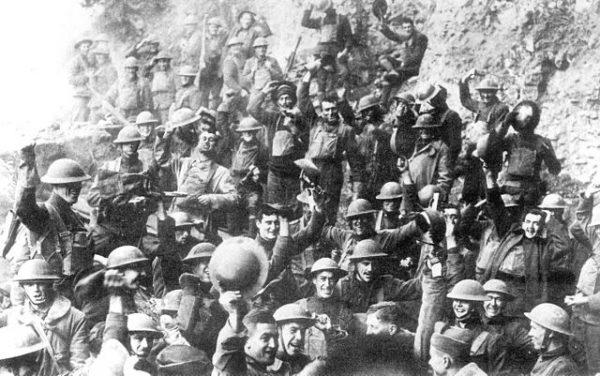
We always wonder what might have happened if things had been different. It’s a part of what makes us human.
Alternate history is arguably one of the best genres in all of popular entertainment, partly because it relies on the complexity of hard decisions and the consequences that come from them. Some of the stories out there are a mixture of the serious and silly, but others are a plausible look at how a few key decisions could have changed the world. The following five scenarios come from the latter category. It is my hope that you, dear readers, will think of these as a fun way to explore the nature of our world and our influence upon it.
Without further ado, let’s head all the way back to the beginning of the United States to explore the unthinkable.
1. What If Washington Was Killed During The Revolution?
The Set-Up:
Before the modern era, generals and admirals were almost always expected to direct their men on the front lines of the conflict. When the United States declared its’ independence from the United Kingdom, General George Washington followed this rule to the letter. From Boston to Yorktown, the future president led his men through victory and defeat, holding the American Revolution together until peace was ultimately achieved with the Treaty of Paris in 1783.
But what if he had died in a battle? The muskets of the time were notoriously inaccurate, so it was entirely plausible that a ball could have veered off course and hit him.
The Aftermath:
As we pointed out above, Washington was arguably the most important figure in the earliest days of the United States. The impact of his death would be felt in the American psyche, but the future of the U.S. would have arguably depended upon when it happened in the timeline.
If Washington was killed before the French entered the war in 1778, the fight for independence could have collapsed with him. While the Commander-in-Chief lost his fair share of battles, he also supplied the critical victories that were needed to keep the revolution going, such as those at Trenton and Princeton in the winter of 1776-1777. Since the support of the French ultimately led to American freedom, it would have been crucial for Washington to lead the push.
If Washington was killed after the French entered the fight, the fate of the U.S. would have changed dramatically. In all likelihood, the man would be remembered as a war hero who gave everything he had for his country, but the role of the President of the United States would have undergone a dramatic change. As President, Washington set forth important precedents like the two-term tradition and a non-interventionist foreign policy.
So, what if the role had fallen into someone else’s hands? Could John Adams have passed the Alien & Sedition Acts? Would Thomas Jefferson have sided with Napoleon?
We will never know.
2. What If Hitler Was Killed During World War I?
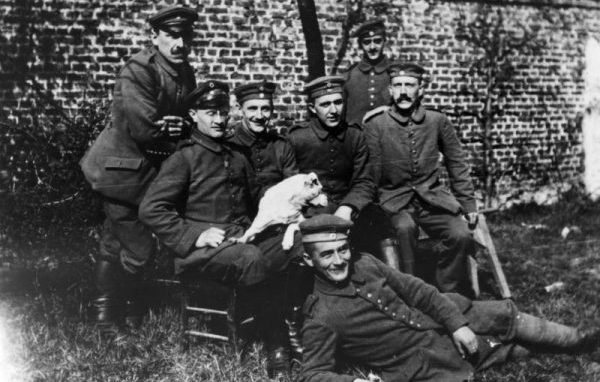
Let’s face it. Everyone has wondered about this scenario. (Bundesarchiv, Bild 146-1974-082-44 / CC-BY-SA 3.0)
The Set-Up:
We all know of the horrors that Hitler and the Nazi Party inflicted upon our world, but a less-explored piece of history is the ultimate influence of World War I upon World War II. Many of the most influential figures of the Twentieth Century gained political or military experience in the First World War, including the future mustachioed tyrant.
When World War I broke out, Hitler enlisted in the Bavarian Army and became a message runner on the Western Front. This job was a particularly dangerous one, so he could have been killed several times by mortar fire or poison gas.
In our world, he survived and became one of the biggest monsters in human history, but what if he had died?
The Aftermath:
World War II would have still happened, but it would not have been the war that we know. The one-two punch of the Great Depression and the Treaty of Versailles all but signed the death warrant of the Weimar Republic, but the future of Germany depended upon their willingness to veer to the left or the right.
In the absence of a growing Nazi Party, the right-wing opposition to the Weimar Republic would have coalesced in the German National People’s Party (DNVP). This party shared some similarities with the Nazis, but a few key differences set them apart. The most important one was their pledge to restore the monarchy. In this alternate timeline, Germany would have gotten its’ Kaiser back and ventured down the path to a similar World War II.
If Germany swerved left, Ernst Thälmann’s Communist Party would have taken power in the country. This move would have turned the geopolitical game against the Allies in unimaginable ways. If a German-Soviet Alliance materialized in this alternate timeline, the Second World War could have created a Communist Europe or turned the continent into a nuclear wasteland.
3. What If Pearl Harbor Received An Early Warning?
The Set-Up:
The Japanese Attack on Pearl Harbor was one of the most surprising military disasters in the history of the United States. On December 7th, 1941, the Imperial Japanese Navy placed a strike group off of the Hawaiian Islands and launched two waves against the U.S. Pacific Fleet. The bombing killed thousands of American sailors and forced the United States to enter World War II on the side of the Allies.
Before the attack, the Office of Naval Intelligence suspected that the Japanese government was up to something, but they thought that their navy would move against targets in Asia or the South Pacific. They didn’t know where or when the actual attack would take place until it was too late.
If the agency had figured it out, how would our world be different?
The Aftermath:
If the U.S. government uncovered the truth, the length of the war against Japan depended upon the timing of the discovery.
A warning of a few hours would have helped to mitigate the worst effects of the attack. At this point, the Army and Navy would have been able to make some preparations, such as putting some fighters in the air to intercept the incoming Zeroes. Most importantly, the fleet had no opportunity to give up the strategic advantage of the harbor and move into the open ocean.
An extended notice of a few days would have been a total disaster for the United States Navy. In our timeline, Pearl Harbor was not a knockout blow because the damage was done in shallow water, which gave the crews a chance to swim to shore and recover their damaged vessels later. If the fleet was allowed to leave the harbor, these men and machines would have been permanently lost in deep water, setting the stage for a longer and bloodier Pacific War.
4. What If The U.S. Stayed Out Of World War I?
The Set-Up:
When World War I broke out in 1914, the United States practiced a kind of biased neutrality that turned in favor of the Allies. President Woodrow Wilson openly said that he wished to adhere to “the true spirit of neutrality, which is the spirit of impartiality and fairness and friendliness to all concerned.” He routinely attempted to mediate peace between the Entente and the Central Powers, but his administration also authorized secured loans to the United Kingdom and the rest of the Allies.
In 1917, Germany brought the United States into the war with two significant moves: the resumption of Unrestricted Submarine Warfare and the creation of the Zimmermann Telegram. And as they say, the rest is history.
But what if these two events had not happened?
The Aftermath:
If the United States never entered World War I, the Central Powers would have won. In our timeline, the U.S. Declaration of War brought two key benefits to the Entente, even though President Wilson never formally joined up. The first was the obvious addition of millions of men to the front, but the authorization of unsecured loans was just as important.
Why? The Entente was effectively broke.
The secured loans were designed to prevent an economic crisis in the event of a German victory. However, the British ran out of North American collateral in 1917. If the U.S. had not entered the war, the resulting credit crunch would have destroyed the Entente’s ability to wage war. U.S. banks would have taken a hit, but it would have been nothing compared to what very well could have happened at the negotiating table.
The United Kingdom could have easily gotten away with a white peace with Germany, but France would have gotten its’ ass handed to it in an alternate version of the Treaty of Versailles.
5. What If John F. Kennedy Had Survived?
The Set-Up:
On November 22, 1963, President John F. Kennedy was assassinated by Lee Harvey Oswald during a political trip to Dallas, Texas. At the time, Kennedy wanted to smooth over some friction in the Democratic Party and set up his 1964 re-election campaign in the state. Yet as we all know, a somewhat mundane bit of political outreach soon turned into a national tragedy.
With that in mind, what might have happened if President Kennedy survived the assassination attempt?
The Aftermath:
Some of the triumphs of Lyndon B. Johnson would have been given to President Kennedy, but at a far greater cost.
In this alternate timeline, the 1964 election would have played out in a similar way to what had happened in our world. Barry Goldwater might have gotten a few more electoral votes, but he was far too extreme to please the electorate of the time. By contrast, President Kennedy was a charismatic figure who would have run the table due to his liberal reforms and some sympathy points for what had happened to him in Dallas.
As a result, the liberal wings of the two parties would have been able to get more than a few of Kennedy’s ideas through Congress. The Civil Rights Act and Voting Rights Act might have taken a little longer to pass, but there were more than enough votes in both parties to get it through. With that said, Medicare and Medicaid would have been watered down a little bit, partly because of the rejection of a similar idea in 1962.
Kennedy’s real challenge would have surfaced in Vietnam. Like many in the New Deal Coalition, he wanted to contain the spread of communist influence as much as he possibly could. However, his decision making would have been tempered by events like the failure of the Bay of Pigs. If Vietnam escalated into a full blown war, Kennedy would have had to deal with a tarnished reputation for quite a while.
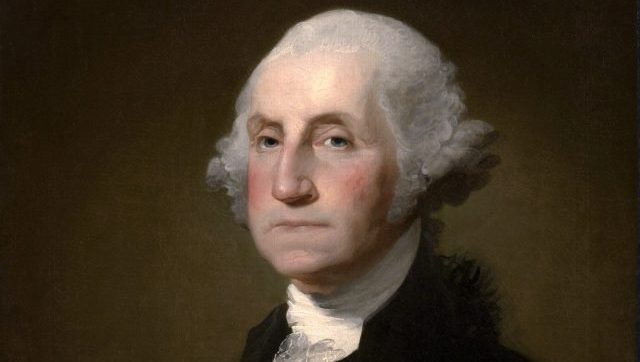
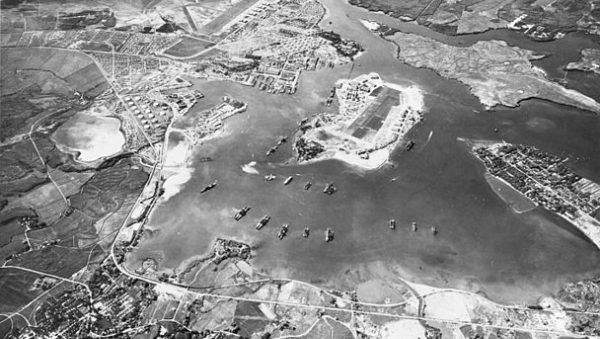
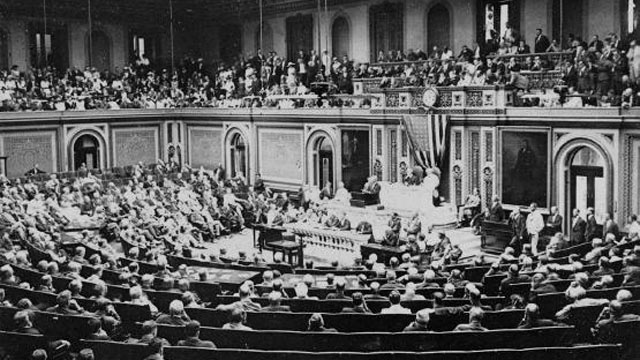
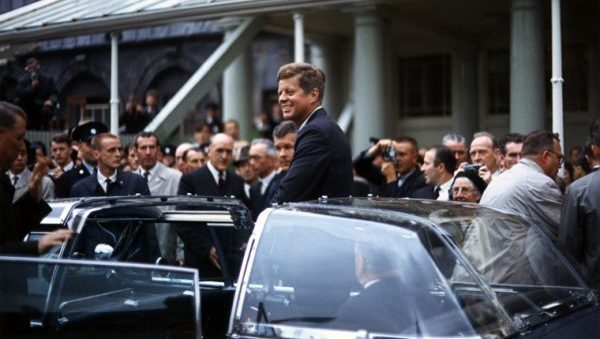
No Comments Yet